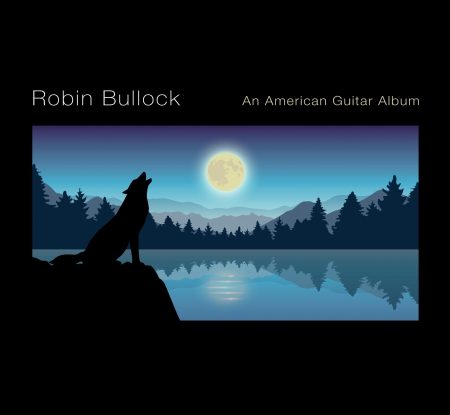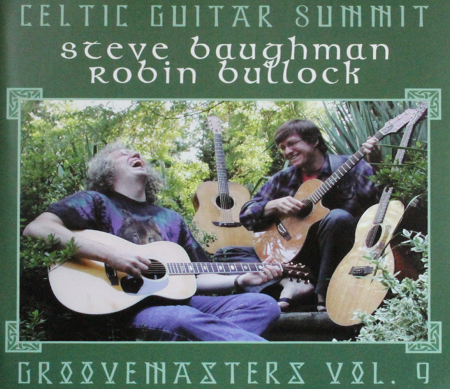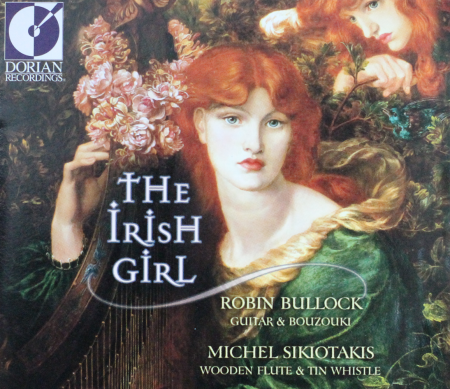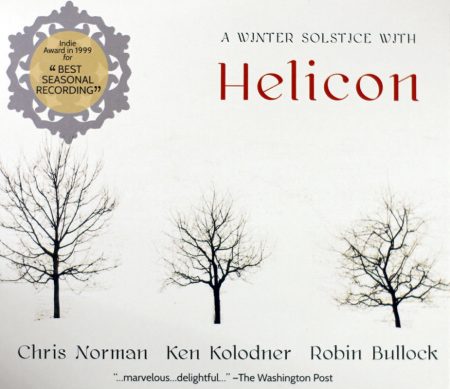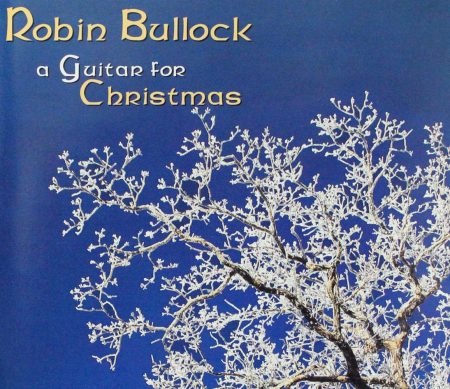Liner Notes
It was Tom Paxton who gave me the idea, during one of the many U.K. tours I did as his sideman. After hearing me play “Shenandoah” in the show every night he asked me if I’d ever considered making a full album of classic American folk songs interpreted on guitar. I hadn’t, but I began pondering the idea then, and several years later here’s the result. (Hope this is more or less what you had in mind, Tom.)
Though much of my musical career has been spent exploring traditions I wasn’t born into, such as Irish, Scottish, and the Baroque and Renaissance music of Western Europe, I’ve always loved the folk music of my own country too; American folk music comprises a unique blend of many cultures – as does the country itself, of course – and the guitar has always played an integral role in it. Like a lot of Americans, I grew up hearing most of these songs and absorbing them unconsciously into my being, and rediscovering them for this project has been a fascinating and revealing journey – indeed, more revealing at times than I might have expected…
I suppose it was inevitable that any exploration of American culture would stir a complex reaction on the part of a native son; there’s no denying the reality that America as a nation hasn’t always lived up to its supposed promise (to put it as mildly as possible). It’s only natural, then, that emotions ranging from exuberance on the one hand to sorrow, anger and despair on the other, and all points in between, found their way into my interpretations of these songs, and what began as a simple celebration of American folk music turned into something deeper and, in many ways, darker.
I do at least like to think, though, that American folkways, musical and otherwise, can still often reflect much that remains good in the collective American psyche. This recording is one guitarist’s attempt to reflect a little bit of that, and is shared here in the hope that one day we may yet become a nation that truly embodies the ideals we claim we were founded on.
Robin Bullock
Black Mountain, North Carolina
Spring 2020
~
“This sorrow and rage will not inflame us to seek retribution; rather, they will inflame our art. Our music will never again be quite the same. This will be our reply to violence: to make music more intensely, more beautifully, more devotedly than ever before.” – Leonard Bernstein, November 1963
~
How Can I Keep from Singing
Guitar tuning, low to high: CGCGCD
A melody of inspiration to start off, which the great Pete Seeger brilliantly turned from a Christian hymn into a non-denominational one.
My life flows on in endless song above Earth’s lamentation,
I hear the real though far-off hymn that hails a new creation.
Above the tumult and the strife I hear the music ringing,
It sounds an echo in my soul; how can I keep from singing?
Corrina Corrina
DGDGBD
As with so many other songs, I first heard this blues standard played by two of my original musical heroes, Doc and Merle Watson. This version also draws inspiration from George Winston’s piano rendition on his 1991 album Summer, and the open-G tuning gives it a bit of a Hawaiian slack-key vibe.
Oh Susanna
CGDGAD, capo 1
The first of three contributions to this recording from the 19th-century American songwriter Stephen Foster. I’ve always felt that beneath the jaunty, somewhat goofy treatment this song is usually given lurks a beautiful, melancholy lament (“If I cannot find her, then I will surely die / And when I’m dead and buried, Susanna don’t you cry”), and I interpret it that way here.
Fox Went a-Hunting on a Chilly Night
1st guitar: DADGBE
2nd guitar: EADGBE, capo 2
Nickel Creek has given this great old song a shot in the arm in recent years, but I first ran across it in my parents’ copy of The Burl Ives Songbook back before I even really knew what folk music was.
Joe Kirby Blues
EADGBE
A composition by another of my early guitar heroes and still one of my favorites, in fact probably the guitarist who influenced my own playing the most: John Fahey. I based my performance of this piece as closely as I could on his two recordings of it, the studio version on his 1967 album Days Have Gone By and a live performance from 1968 issued in 2004 on the CD The Great Santa Barbara Oil Slick.
Long Way from Home Medley
My Home’s Across the Blue Ridge Mountains / Poor Boy Long Ways From Home
DADF#AD
The first song here is so ubiquitous in the American folk tradition that I can’t possibly remember when, where or from whom I first learned it. The second is a guitar blues that’s been around for a while under various titles; although it’s sometimes attributed to John Fahey, he admitted to learning the song from the 1927 recording by blues 12-string guitarist Barbecue Bob (as did Doc Watson, who called it “Poor Boy Blues”). Furthermore, Fahey’s version is only a slight variation on early Grand Ole Opry guitarist Sam McGee’s adaptation, “Knoxville Blues” (which Fahey also recorded), which in turn is pretty much identical to the 19th-century parlor guitar piece “The Siege of Sebastopol” (which Fahey also recorded). Such is the slippery nature of the folk process…
Lost Hollow Lament
DADGAD, capo 1
An original composition that I first recorded on my 1995 CD Midnight Howl. After many requests for it as a guitar solo, here it is again. Lost Hollow was my private name for my secret wooded refuge in southern Maryland as a child, which seemed to make this piece reasonably appropriate for an album of American music on guitar.
Cannonball Blues / Oh Babe It Ain’t No Lie
Lead 6-string guitar: DGCFAD
Rhythm 6-string guitar: EADGBE, capo 1
12-string guitar: EADGBE, capo 3
It wouldn’t be a true American Guitar Album without some influence from Maybelle Carter and the original Carter Family. The first melody, one of the hundreds they recorded between 1927 and 1941, is an American folk/blues standard with many identities, including “Railroad Bill,” “Solid Gone,” “White House Blues” and no doubt many others. The second comes from, and is sometimes attributed to, another great lady of American folk guitar and the composer of “Freight Train,” Elizabeth “Libba” Cotten (although I first heard it played by that legendary folk group the Grateful Dead).
Shenandoah
CGCGCE
This is my third recording of this great American evergreen, the first two being on my 2005 CD The Enchanted Woods and Tom Paxton’s 2009 CD/DVD Live at Huntingdon Hall. I like the idea of continuing to re-record it from time to time as an ongoing musical diary, since this arrangement seems to have a life of its own; it continues to grow and evolve through the years and I make new discoveries every time I play it. This song, for all its apparent simplicity, is surely one of the most profound pieces of music America has given to the world.
The Streets of Laredo
6-string guitar: DADF#AD, capo 1
12-string guitar: EADGBE, capo 3
The classic American “dying cowboy” song. A requiem for the death of dreams.
Hard Times Come Again No More
CGCGCD
One of my favorite Stephen Foster songs (and if you haven’t heard the Red Clay Ramblers’ version on their album Hard Times, drop everything right now and go hunt it down and check it out). This performance is dedicated to the hope that someday humankind will evolve enough that the lyrics will no longer still be relevant:
Though we seek mirth and beauty and music bright and gay,
There are frail forms fainting at the door.
Though their voices are silent, their pleading looks will say
Oh hard times, come again no more.
“Twenty centuries of Christianity with its relics of bloodshed, its architecture and acres of linen madonnas hanging in all the mausoleums of art the world over. And still it is permitted that women with white hairs should sleep in the cold.” – Henry Miller, Tropic of Cancer
Beautiful Dreamer
DADGBE
Tied with “Hard Times” as my favorite Stephen Foster song, I’d say. This is said to be the last song he wrote before he died at age 37. Both the music and the lyrics hint at a serenity removed from this life…
Beautiful dreamer, wake unto me,
Starlight and dewdrops are waiting for thee.
Sounds of the rude world heard in the day
Lulled by the moonlight have all passed away…
…did he sense that he was soon to leave this world and its cruelty behind?
We Shall Overcome
CGCGCD
“The arc of the moral universe is long, but it bends toward justice.” – Dr. Martin Luther King, Jr.
~
Dedicated to the memory of Frederick Allyn Bullock, 1926-2018. Thanks for everything, Dad.



